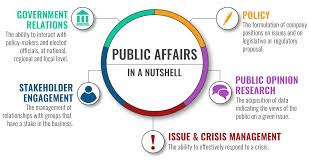Driving Economic Growth: The Vital Role of Industry in Today’s Economy
The Importance of Industry in Today’s Economy
Industry plays a crucial role in driving economic growth and development in today’s world. It encompasses a wide range of sectors, including manufacturing, technology, healthcare, finance, and more. The contributions of industry are far-reaching and impact various aspects of our lives.
One key aspect of the industry is its role in job creation. Industries provide employment opportunities for millions of people worldwide, supporting livelihoods and driving economic prosperity. Additionally, industries foster innovation and technological advancements, leading to the development of new products and services that enhance our quality of life.
Moreover, industry plays a significant role in international trade. Countries with strong industrial sectors often have a competitive edge in the global market, exporting goods and services that contribute to their economic growth. Industry also drives infrastructure development and investment, creating a conducive environment for business operations.
Furthermore, the industry is essential for sustainable development. As industries evolve, there is a growing emphasis on environmentally friendly practices and sustainable production methods. Many industries are adopting green technologies and renewable energy sources to reduce their carbon footprint and mitigate environmental impact.
In conclusion, industry is a vital component of today’s economy, driving growth, innovation, job creation, and sustainability. It is imperative for governments, businesses, and society as a whole to recognise the importance of industry and work together to support its continued growth and development.
Seven Key Benefits of Industry: Driving Growth, Innovation, and Sustainability
- Industry drives economic growth and prosperity.
- It creates job opportunities for a large workforce.
- Industries foster innovation and technological advancements.
- Strong industrial sectors contribute to a country’s competitiveness in the global market.
- Industry plays a crucial role in infrastructure development and investment.
- Many industries are adopting sustainable practices for environmental conservation.
- The industry sector provides diverse career paths and specialisations.
Challenges of Industry: Environmental Impact, Labour Exploitation, Economic Inequality, Resource Depletion, and Technological Displacement
- Environmental impact
- Labour exploitation
- Economic inequality
- Resource depletion
- Technological displacement
Industry drives economic growth and prosperity.
Industry drives economic growth and prosperity by creating employment opportunities, fostering innovation, and generating wealth. As industries expand and evolve, they contribute to the overall development of a country’s economy, leading to increased productivity and competitiveness in the global market. The growth of industries often results in a ripple effect, benefiting various sectors and supporting the livelihoods of individuals. Additionally, industrial growth stimulates investment and infrastructure development, further enhancing economic prosperity for both businesses and communities.
It creates job opportunities for a large workforce.
The creation of job opportunities for a large workforce is a significant advantage of the industry. Industries across various sectors provide employment opportunities to millions of individuals, supporting livelihoods and contributing to economic growth. This not only helps reduce unemployment rates but also fosters skill development and career advancement for workers, ultimately improving their quality of life and boosting overall prosperity in society.
Industries foster innovation and technological advancements.
Industries play a pivotal role in fostering innovation and driving technological advancements. Through research and development efforts, industries continuously push the boundaries of what is possible, leading to the creation of new products, services, and processes that enhance our daily lives. By investing in innovation, industries not only stay competitive in the market but also contribute to overall economic growth and development. This commitment to technological progress fuels creativity, drives efficiency, and paves the way for a brighter future filled with cutting-edge solutions to complex challenges.
Strong industrial sectors contribute to a country’s competitiveness in the global market.
A robust industrial sector is a cornerstone of a country’s competitiveness in the global market. By fostering innovation, driving productivity, and ensuring high-quality production, strong industrial sectors enable countries to offer competitive goods and services that meet international standards. This not only enhances a country’s export potential but also attracts foreign investment and stimulates economic growth. Additionally, a strong industrial base creates a ripple effect across other sectors, contributing to job creation, infrastructure development, and overall prosperity for the nation.
Industry plays a crucial role in infrastructure development and investment.
Industry plays a crucial role in infrastructure development and investment by driving the construction of essential facilities such as roads, ports, energy plants, and manufacturing hubs. These investments not only support the efficient operation of industries but also benefit the wider community by improving connectivity, creating job opportunities, and stimulating economic growth. Infrastructure development facilitated by industry helps to enhance productivity, attract further investment, and foster a conducive environment for business activities to thrive.
Many industries are adopting sustainable practices for environmental conservation.
Many industries are embracing sustainable practices as a proactive approach towards environmental conservation. By implementing eco-friendly initiatives such as reducing carbon emissions, minimising waste, and using renewable energy sources, these industries are not only contributing to the preservation of the environment but also setting a positive example for others to follow. Embracing sustainability in their operations showcases a commitment to responsible business practices and demonstrates a genuine concern for the well-being of our planet and future generations.
The industry sector provides diverse career paths and specialisations.
The industry sector offers a multitude of career opportunities and specialisations, catering to individuals with diverse skills and interests. From manufacturing and technology to healthcare and finance, the industry sector provides a wide range of career paths for professionals to explore and excel in. Whether one’s passion lies in engineering, research and development, operations management, marketing, or finance, the industry sector offers a wealth of options for individuals to pursue fulfilling careers and make significant contributions to their respective fields. The availability of diverse career paths within the industry sector ensures that individuals can find roles that align with their strengths and aspirations, fostering professional growth and development.
Environmental impact
The environmental impact of industries is a significant concern, as they can contribute to pollution, deforestation, and other environmental issues. Industrial activities often result in the release of harmful emissions and pollutants into the air, water, and soil, leading to air pollution, water contamination, and habitat destruction. Deforestation to make way for industrial facilities or resources extraction further exacerbates environmental degradation and loss of biodiversity. Addressing these environmental challenges requires industries to adopt sustainable practices and technologies that minimise their ecological footprint and promote conservation efforts to mitigate the negative impact on the environment.
Labour exploitation
Labour exploitation is a concerning con associated with certain industries, where workers may face issues such as inadequate wages, substandard working conditions, and a lack of job security. This exploitation not only affects the well-being of individual workers but also undermines the principles of fair labour practices and human rights. Industries that engage in such practices not only harm their workforce but also tarnish their reputation and contribute to social inequality. Addressing labour exploitation in industries is crucial to ensure the dignity and rights of workers are respected, promoting a fair and ethical work environment for all.
Economic inequality
One significant con of industry is the exacerbation of economic inequality. The concentration of wealth and power in certain industries can lead to a widening gap between the rich and the poor. As industries become more dominant and influential, they often dictate market dynamics, wages, and opportunities, resulting in disparities in income distribution. This can further marginalise disadvantaged groups and hinder social mobility, perpetuating a cycle of economic inequality that poses challenges to achieving a fair and inclusive society.
Resource depletion
One significant con of industry is the issue of resource depletion. Industries that heavily rely on natural resources may exploit them at a rate faster than they can naturally replenish, posing serious sustainability challenges. This unsustainable practice not only depletes valuable resources but also disrupts ecological balance and threatens the long-term viability of these resources for future generations. It is essential for industries to adopt sustainable practices and resource management strategies to mitigate the negative impact of resource depletion and ensure a more environmentally responsible approach to production.
Technological displacement
Technological displacement is a significant con of industry as automation and technological advancements in certain sectors can result in job losses and unemployment for human workers. With the rise of robotics, artificial intelligence, and advanced machinery, many traditional roles are being replaced by automated systems that can perform tasks more efficiently and cost-effectively. This displacement not only impacts individual livelihoods but also poses challenges for society in terms of retraining workers for new roles and addressing the widening gap between technological advancements and workforce capabilities. Efforts must be made to mitigate the negative effects of technological displacement through upskilling initiatives, job creation in emerging industries, and policies that support a smooth transition for displaced workers into new employment opportunities.








